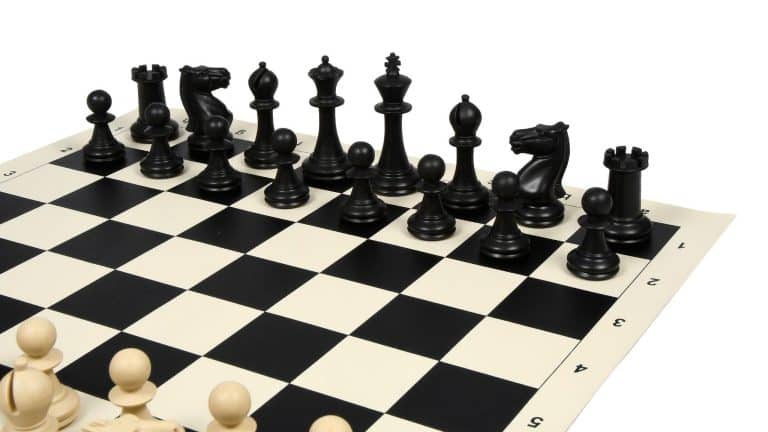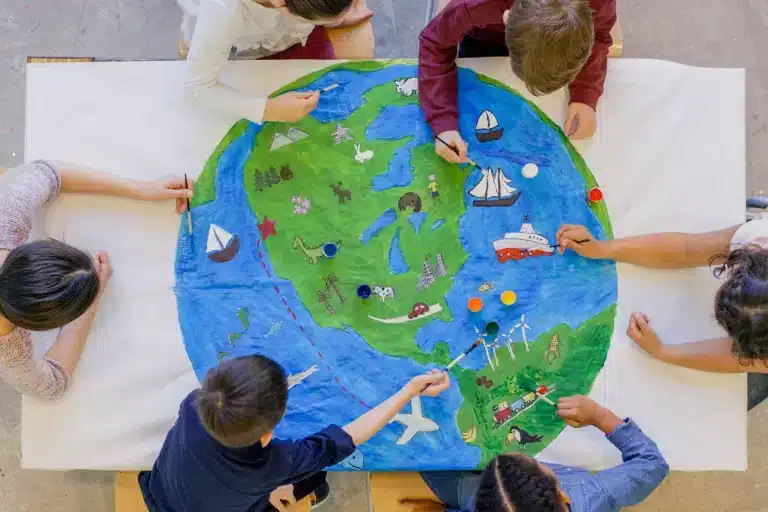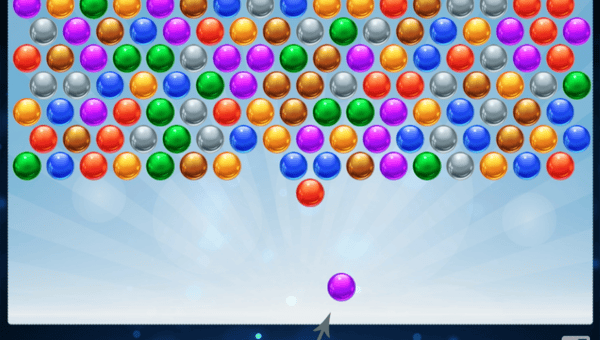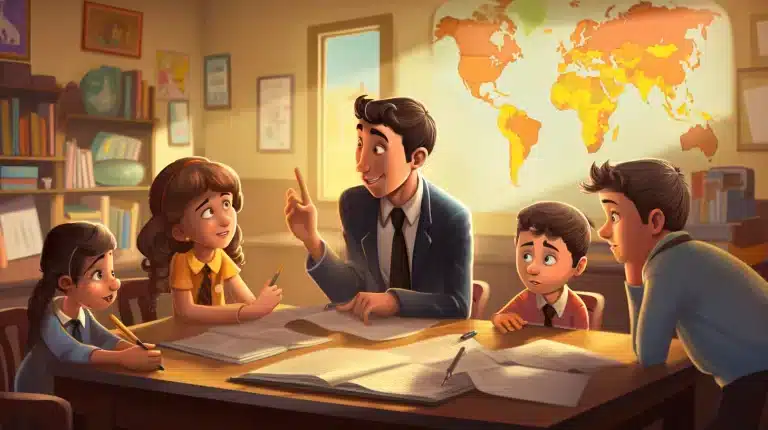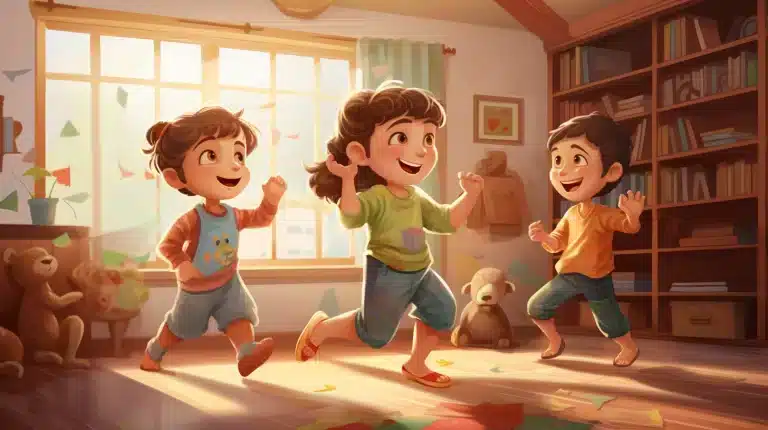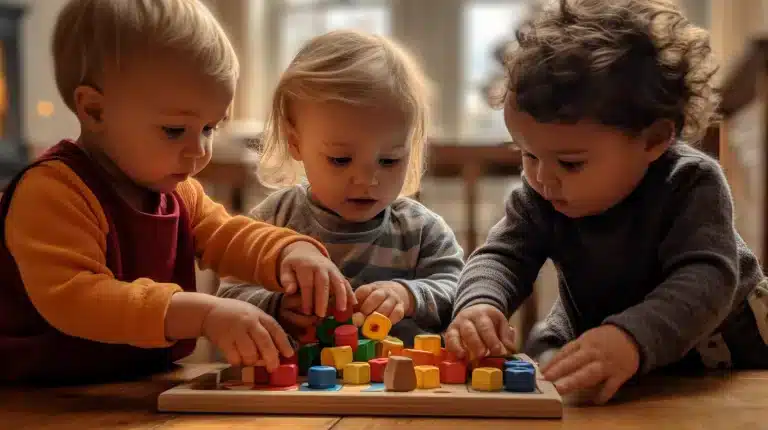Video game addiction among kids is a growing concern for parents all around the world. What adds severity to it are the health consequences and the absence of concrete solutions to fight gaming addiction or disorder, as called in several parts of the world.
Are you worried about your kid spending too much time on the screen playing games? Are you also looking for a way to tackle the gaming addiction in your kids?
If the answer to any of the above questions is a YES, keep reading the blog as we address the concern of video game addiction in kids. Moreover, you’ll discover how introducing kids to chess is a great way to beat gaming addiction.
Video Gaming – A Modern Drug for Kids
One of the most destructive drugs that kids are being exposed to in modern society is Video Gaming. Yes, you read that right.
It is estimated that over 8.5% of youth aged between 8 years to 18 years suffer from gaming addiction. And the number is expected to grow in the coming years. The increasing accessibility of video games is one of the biggest reasons why the number of kids prone to gaming addiction has seen a rise in the last few years.
The reason why it is a matter of concern for parents is that video gaming has a direct impact on the mental health of kids, their cognitive abilities, and episodic memory. However, the negative effects of gaming are not limited to the few mentioned above.
Negative Impacts of Video Gaming on Kids
Irrigates the grounds for Aggression
It has been found in various studies published online that video games lead to the development of violence and aggression in kids. It desensitizes them to such behaviour, and they get addicted to violent behaviour.
Weakens the Mental Health
Gaming addiction in kids ruins their sleeping patterns and leads to innumerable mental health issues. Isolation and depression are also often related to video gaming as kids lose their social interaction and focus less on outdoor activities.
Deteriorates the Physical Health
Sitting for longer hours in front of the screen playing video games leads to obesity and numbness in kids. It also results in developing constant pain and swelling in many cases.
“How do I find out my kid is suffering from gaming addiction?”
Symptoms of Gaming Addiction
Withdrawal Symptoms:
A child suffering from gaming addiction when not allowed to play video games may have withdrawal symptoms that are similar to those experienced by addicts.
Gaming obsession:
Addiction may be indicated by children who prioritize video games over other activities, think about them all the time, and talk about them. This obsession shows a deep concentration on the gaming experience.
Physical Problems:
Extended gaming sessions can cause sore fingers, a sore back, or a sore neck, as well as eyestrain.
Declining Interest in Academic Achievement:
There is frequently a correlation between video game addiction and a decline in interest in academic achievement. Less focus is placed on schooling, and more time is spent gaming.
Loss of Interest in Different Pursuits
When video game addiction sets in, kids may stop enjoying once-enjoyed activities in favour of spending more time at the game controls.
But can playing chess help kids overcome their gaming addiction? How can a chess set reshape the lives of kids with better mental health?
Let’s find out!
The Game of Chess – A Remedy to Gaming Addiction
Known for being the game of intellectuals, chess has a rich history spanning over centuries and a direct link with brain functioning.
How can it help kids fight the demon of gaming addiction?
The game of strategic thinking, chess, is designed to put the players’ brains to a much-needed workout. Moreover, chess boosts kids’ memory function and enhances their problem-solving abilities and creativity.
Time to deep dive in this subject.
Chess Shifts Focus from Screen Time to a Mentally Stimulating Activity
Playing chess is a fascinating way to transition from screen-centric pastimes to mentally engaging hobbies. In addition to giving kids and youngsters a mental vacation from too much screen time, chess immerses them in the complex and strategic world of strategy.
The intricacy of the game fosters strategic planning, problem-solving, and critical thinking, all of which contribute to pleasurable cognitive development.
Establishes Balance Between Entertainment and Educational Engagement
Playing chess establishes a good balance between educational engagement and fun for kids. Chess skillfully combines the excitement of competition with the potential for intellectual development, in contrast to specific, solely recreational pursuits. Children’s free time may be both entertaining and enriching as they learn abilities like focus, decision-making, and spatial awareness while having fun when playing games.
Chess has been proven to have many educational benefits for kids, too. Let’s discuss the different educational benefits of playing chess for kids.
Education Benefits of Playing Chess for Kids
Playing chess for kids is fun; it’s a valuable teaching tool that can be used in many ways. Engaging children in the strategic nuances of chess sets the stage for a developmental journey that enhances their cognitive abilities and builds a solid foundation for academic success, problem-solving ability, and social-emotional development.
Chess provides children with various educational benefits in the following areas –
- Cognitive Development
- Academic Performance
- Social and Emotional Skills
Here are some of the top most educational benefits of playing chess for kids.
A. Cognitive Development
- Develops strategic planning abilities through critical thinking:
Chess players must anticipate their opponent’s movements and make plans based on those predictions. By strengthening critical thinking, strategic thinking promotes the capacity to assess options, analyze circumstances, and come to well-informed conclusions. Gamers gain the ability to predict the future, a valuable talent that may be applied in various real-world situations outside the chessboard.
- Enhances focus and memory:
Because chess is such a complex game, learning various patterns, openings, and endgame strategies is essential. Consistently playing the game improves recall and memory retention. Additionally, the concentrated attention needed to win a chess game improves concentration abilities.
B. Academic Performance
- Relationship between playing chess and academic success:
Several research studies indicate a favourable relationship between playing chess and academic success. The cognitive abilities developed in chess, such as focus, problem-solving, and critical thinking, frequently result in better academic performance.
Chess promotes a systematic approach to education, and kids who play the game can perform better academically.
- Acquiring abilities to solve problems outside of the chessboard:
Chess is just a set of interrelated puzzles requiring problem-solving skills. Kids have to come up with clever plans to beat rivals and obstacles. These problem-solving abilities are helpful in both academic and practical contexts, not just on the chessboard.
C. Social and Emotional Skills
- Encouraging resilience and sportsmanship:
As players encounter both victories and defeats, chess provides important lessons in sportsmanship. Humbly celebrating victory and gently accepting defeat are essential aspects of the game. Fair play, resiliency, and emotional maturity are all fostered by this.
- Promoting cooperative play and healthy competition:
Kids can participate in constructive competition and foster a sense of camaraderie through chess clubs, tournaments, and team competitions. Within the chess community, cooperative problem-solving encourages communication and teamwork, which helps players’ social growth.
Now, you’re ready to introduce your kids to the game of chess, setting them on a journey to improving their mental health and quitting video games.
Introducing Kids to the Game of Chess
Choosing the right chess essentials, like chess boards, chess pieces, and storage boxes/pouches, is vital for kickstarting your kids’ learning and playing chess journey. But there is a need for introducing chess to kids at an early age.
Aware kids about Chess in Early Childhood:
A solid foundation needs to be built by making the kids understand the game of chess. A few of the best ways to achieve this goal and introduce chess to your kids are as follows:
Early exposure to chess sets the stage for a voyage of cognitive growth and intellectual inquiry.
Picking age-appropriate chess materials:
Introduce kids to entertaining chess resources that are age-appropriate to begin with.Children’s interactive games and online lectures can be fun and instructive.
Selecting platforms that fit into a technologically focused niche guarantees that chess is easily incorporated into a child’s education. There are many good websites that emphasize chess teaching in the context of technology are available for parents and educators to peruse, offering a thorough and engaging introduction to the game.
Buy a perfect chess set for kids:
Investing in the ideal chess set for kids will help to improve their chess education. An actual chessboard and pieces provide a tactile sensation along with the virtual learning component.
Incorporating chess into early education programs:
Students can profit significantly from chess integration in educational programmes. Beyond only teaching strategy, chess is a potent instrument for improving cognitive growth.
By incorporating chess into the curriculum, teachers give children a unique chance to develop their intellectual capacities entertainingly and interestingly.
Summary
Chess improves critical thinking, memory, and social interaction, which are essential educational benefits. To foster a well-rounded approach to developing young minds, encourage other parents and educators to embrace chess as a proactive option, using real sets and internet resources.
Investing in the ideal chess set for kids will help to improve their chess education. An actual chessboard and pieces provide a tactile sensation along with the virtual learning component.
Additionally, chess offers a beneficial respite from screen time because it captures their attention with its strategic challenges.
It is highly recommended for parents and educators to explore chess as a proactive approach to children’s development. Its many benefits go beyond simple leisure; it seamlessly combines intellectual stimulation with amusement.
It’s time for you to start having chess matches with your kids and boost their mental health.

